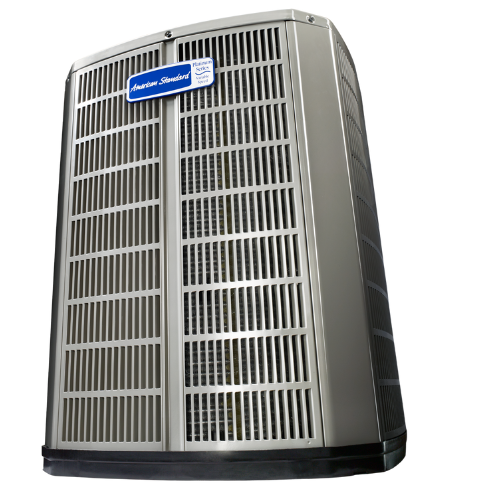Why Is My Air Conditioner Freezing Up? 5 Reasons & Tips
During the scorching summer months, an air conditioner becomes an invaluable appliance in keeping our homes cool and comfortable. So, encountering a frozen air conditioner can be a frustrating experience! If you’ve ever found your air conditioner covered in ice, you’re not alone. Understanding the reasons behind this issue is crucial to prevent further damage to your cooling system and ensure optimal performance. In this blog post, we’ll explore some common causes of air conditioner freezing and discuss potential solutions.
Insufficient Airflow:
One of the most common reasons for an air conditioner freezing up is inadequate airflow. When airflow is restricted, the evaporator coil, responsible for absorbing heat and cooling the air, becomes too cold, causing condensation to freeze on its surface. Several factors can lead to reduced airflow, such as dirty air filters, blocked air vents, closed registers, or even a malfunctioning blower fan. Regularly cleaning or replacing air filters and ensuring unobstructed airflow throughout your home can help resolve this issue.
Low Refrigerant Levels:
Refrigerant is the substance responsible for absorbing heat from your indoor air and transferring it outside. If your air conditioner is low on refrigerant, it can cause the evaporator coil to become excessively cold, resulting in ice formation. Refrigerant levels may drop due to leaks in the system, which should be addressed by a qualified HVAC technician. It’s essential to have your air conditioner regularly serviced to ensure proper refrigerant levels and identify any potential leaks.
Thermostat Problems:
Sometimes, the problem might lie with the thermostat rather than the air conditioner itself. If the thermostat is not functioning correctly, it could cause the system to run continuously or cycle on and off too frequently. This erratic operation can lead to the evaporator coil becoming excessively cold and freezing up. Make sure your thermostat is calibrated correctly and consider upgrading to a programmable or smart thermostat to maintain consistent temperature control.
Blocked or Dirty Evaporator Coil:
Over time, the evaporator coil can accumulate dirt, dust, and debris, obstructing the heat exchange process. A dirty coil reduces airflow and hampers the coil’s ability to absorb heat, resulting in freezing. Regular HVAC maintenance can prevent this issue. However, it’s crucial to handle the cleaning process carefully to avoid damaging the delicate fins of the coil. Seeking professional assistance is recommended to ensure a thorough and safe cleaning.
Oversized Air Conditioner:
Believe it or not, having an air conditioner that is too big for your space can lead to freezing issues. An oversized unit cools the air rapidly, causing the system to cycle on and off frequently. This short cycling prevents the evaporator coil from reaching the optimal temperature, leading to ice formation. If you suspect that your air conditioner is oversized, consult an HVAC professional to evaluate your cooling needs and recommend an appropriately sized unit.
Get Regular Maintenance
A frozen air conditioner can be a nuisance, disrupting your comfort and potentially damaging your cooling system. By understanding the common causes of air conditioner freezing, you can take proactive steps to prevent this issue. Regular HVAC maintenance from licensed and experienced technicians can help keep your air conditioner running smoothly and efficiently. Remember, if you encounter a freezing problem that you can’t resolve on your own, it’s best to consult a qualified HVAC technician to diagnose and fix the issue, ensuring optimal performance and a comfortable indoor environment.
Contact Us
For more than 50 years, our factory-trained comfort specialists and technicians have helped to keep your home comfortable! Spencer at the Lake is a trusted American Standard Heating & Air Conditioning Customer Care Dealer in the Lake Martin area. Call us at (256) 373-3165 for more information and follow us on Facebook and Instagram.





